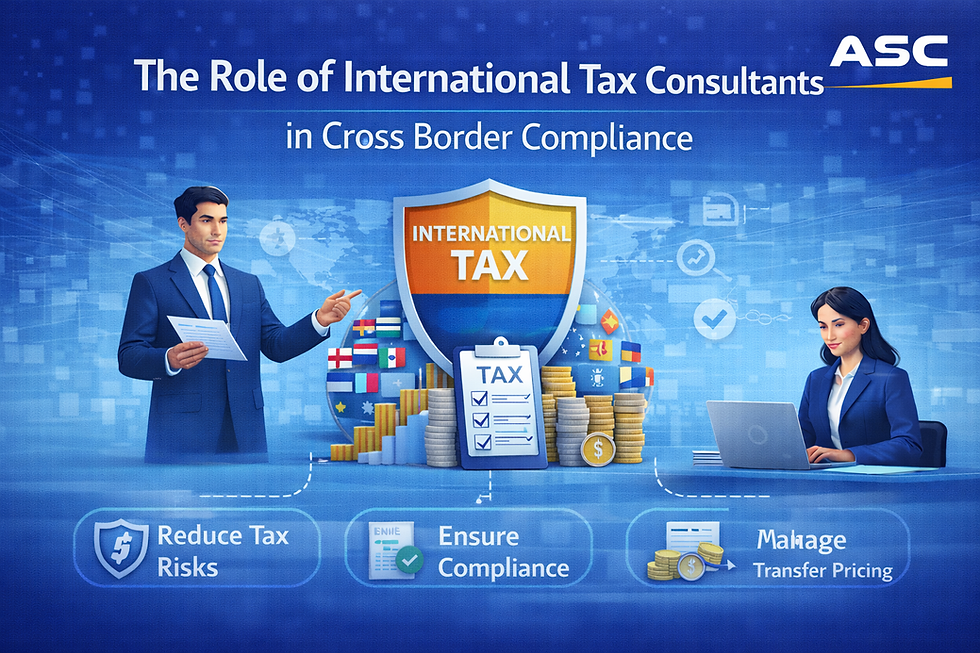Why LMPC Certificate Matters & How Legal Metrology Act Registration Ensures Import Compliance
- ASC Group
- Nov 18, 2025
- 4 min read
Importing pre-packaged goods into India is highly regulated, and any importer—whether dealing in electronics, household goods, toys, machinery, or food items—must comply with the Legal Metrology Act, 2009. One of the most important compliance requirements under this law is obtaining the LMPC Certificate for Import. Without it, goods may be detained at customs, rejected, or sent back to the country of origin.
In today’s import-driven economy, understanding LMPC Registration, its process, and why it matters has become essential for smooth and lawful business operations. This detailed guide explains the purpose of the Legal Metrology Act, when LMPC Certification is required, its benefits, and how importers can avoid compliance hurdles.
What Is an LMPC Certificate & Why Is It Mandatory?
The LMPC Certificate (Legal Metrology Packaged Commodities Certificate) is issued under the Legal Metrology (Packaged Commodities) Rules. It ensures that all imported pre-packaged goods comply with labeling, packaging, and weight-related standards before entering the Indian market.
Importers must obtain an LMPC Certificate before customs clearance if they import:
Pre-packed electronic items
Cosmetic and personal care products
Ready-to-eat or processed foods
Toys, tools, and household goods
Machinery and automobile accessories
Any product sold in a sealed package to consumers
If a product is sold in a package, the LMPC License becomes mandatory.
Why It Matters:
Ensures accurate declarations on the packaging
Protects consumers from deceptive trade practices
Establishes transparency in imports
Prevents penalties and shipment hold-ups at ports
Without the correct Legal Metrology Registration, importers risk heavy fines and delayed business operations.
How Legal Metrology Registration Ensures Import Compliance
The Legal Metrology Act regulates weights, measures, and packaging standards across India. For importers, this law ensures that all packaged goods entering the country meet mandatory labeling norms.
Under the LMPC Registration Certificate, importers must declare:
Manufacturer or importer name and address
Net weight or quantity
Maximum Retail Price (MRP)
Date of manufacture or import
Customer care details
Country of origin
Batch or lot number
These details protect consumers while helping authorities regulate and trace products throughout the supply chain.
Who Needs LMPC Registration?
You need an LMPC License if:
You import any goods in sealed or pre-packaged form
You manufacture packaged commodities for retail sale
You re-pack products before selling them in India
Both importers and domestic sellers must comply with the Legal Metrology Act Registration depending on their business operations.
Common Situations Where LMPC Certificate for Import Is Required
Electronics imported for retail sale (mobile phones, headphones, chargers, appliances)
Cosmetics, perfumes, and skincare goods
Packaged food items and nutritional products
Toys and children’s items
Car accessories and small machinery parts
Hardware tools and household goods
If your product appears on shelves in packaged form, LMPC Registration Online is compulsory.
LMPC Registration Process: Step-by-Step Explained
The LMPC Certificate Registration process is straightforward but must be completed with accurate documentation and labeling compliance.
Step 1: Prepare Required Documents
Importer’s KYC
GST registration
IEC code
List of items imported
Packaging labels compliant with Legal Metrology rules
Premises address proof
Step 2: Submit Application Online or Offline
Applications can be filed through Legal Metrology Online Registration, depending on the state.
Step 3: Document Review & Inspection
Authorities may inspect the warehouse or packaging facility before approving the LMPC License.
Step 4: Certificate Issuance
After verification, the importer receives the LMPC Registration Certificate, valid for 1–5 years depending on state regulations.
LMPC Registration Fees
The LMPC Registration Fees vary from state to state but generally include:
Government application fee
Inspection fee (if applicable)
Renewal charges
Importers should check state-wise fee structures to avoid unexpected costs.
Common Mistakes Importers Make (And How to Avoid Them)
Many importers face shipment delays because of errors in the LMPC Registration Process. Common issues include:
Incorrect MRP or net quantity declaration
Missing importer details on the packaging
Applying for LMPC License after goods have arrived at customs
Submitting incomplete documents
Not updating renewed certificates
Avoiding these mistakes ensures smooth customs clearance and prevents legal penalties.
How ASC Group Helps Importers with LMPC Registration
ASC Group is one of India’s leading Legal Metrology Consultants, offering expert support to importers, manufacturers, and brand owners. With extensive experience in compliance and certification, ASC ensures faster and error-free LMPC approvals.
ASC Group Offers:
✔ Complete assistance for LMPC Certificate Apply Online✔ End-to-end Legal Metrology Act Registration✔ Label verification and compliance guidance✔ Documentation support and application filing✔ Avoidance of customs delays and penalties✔ Renewal support for LMPC License
For businesses dealing with frequent imports, ASC Group simplifies every step, ensuring full legal compliance and uninterrupted market operations.
Conclusion
The LMPC Certificate is not just a legal requirement—it is an essential compliance tool that ensures transparency, consumer protection, and smooth import operations. Understanding the Legal Metrology Act Registration, its process, and its obligations helps importers avoid penalties, ensure proper labeling, and maintain seamless customs clearance.
Whether you are new to importing or expanding your product range, obtaining the right LMPC Registration Certificate is crucial for staying legally compliant. With expert guidance from ASC Group, businesses can complete the process smoothly, confidently, and without stress.




Comments